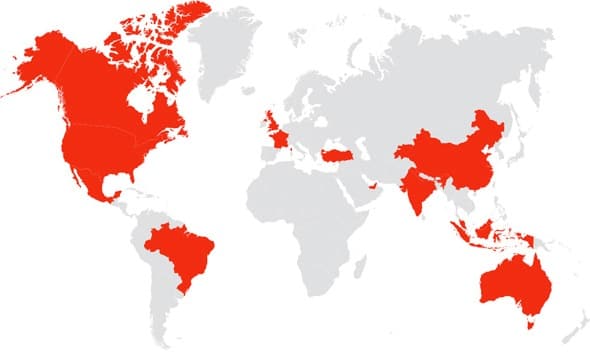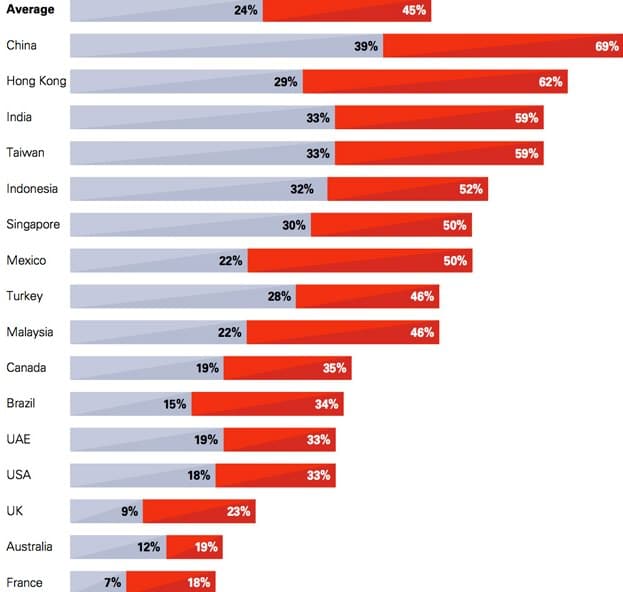Global parents’ survey: three quarters would consider university abroad
A newly released survey of 5,550 parents in 16 countries around the world finds that most - 77% - would consider sending their child abroad for either undergraduate or postgraduate studies.
Learning for Life is the latest instalment in HSBC’s The Value of Education research series. It was published earlier this month by HSBC and is based on a nationally representative survey of parents in each country who have at least one child aged 23 or younger. The survey was conducted online in March and April 2015 by Ipsos MORI (with supplemental in-person interviews in the UAE).

Most prepared to pay more for university abroad
Just over a third (34%) of parents who would not consider study abroad for their children said that cost was an issue. Interestingly, perceptions of the relative quality of education also figured significantly in parent’s interest in study abroad. "The quality of education available is also a factor in deterring parents from considering an international university education for their children," says the report. "Of parents who would not consider this option, over a quarter (26%) think that their home country offers a superior university education; rising to around half in Singapore (53%), Malaysia (48%), and India (47%)."
On a related note, HSBC also found that those inclined toward study abroad for their children are often also open to paying more for university studies overseas than they would expect to pay at home. Four out of five parents interested in study abroad would consider paying more for an overseas university.
The following chart reflects variations from country to country in the sample, but also points out that nearly half (45%) would consider paying up to a quarter more (that is, above the costs of a university education in their home country) while just under a quarter (24%) would consider paying up to 50% more for university studies abroad.

Interesting perspective
Needless to say, the HSBC effort is a high-level survey covering a wide range of developed and emerging economies and, particularly in that context, global findings have to be considered very carefully indeed. However, the overall impact of the HSBC research is to create an evidence-based sense of perspective from the marketplace. Given the key role that parents play in the study abroad planning of many students, that is a highly valuable perspective indeed. The first report in The Value of Education series last year provided similarly interesting insight as to the parents’ view of the relationship between price and perceived quality. Readers are encouraged to review our earlier report on the 2014 research for additional background and summary findings.
Most Recent
-
South Korea on track to attract thousands more international students within the decade Read More
-
International enrolment declines pressuring UK universities this year, with one in three facing significant financial challenges Read More
-
New Zealand expands work rights for accompanying dependants of foreign students Read More
Most Popular
-
Comparing student visa proof of funds requirements across 20 study destinations Read More
-
Canada: More provincial cap numbers announced; IRCC moves up end date for post-graduate work for partnership programmes Read More
-
Lessons from Denmark: The downside of limiting international student flows Read More















